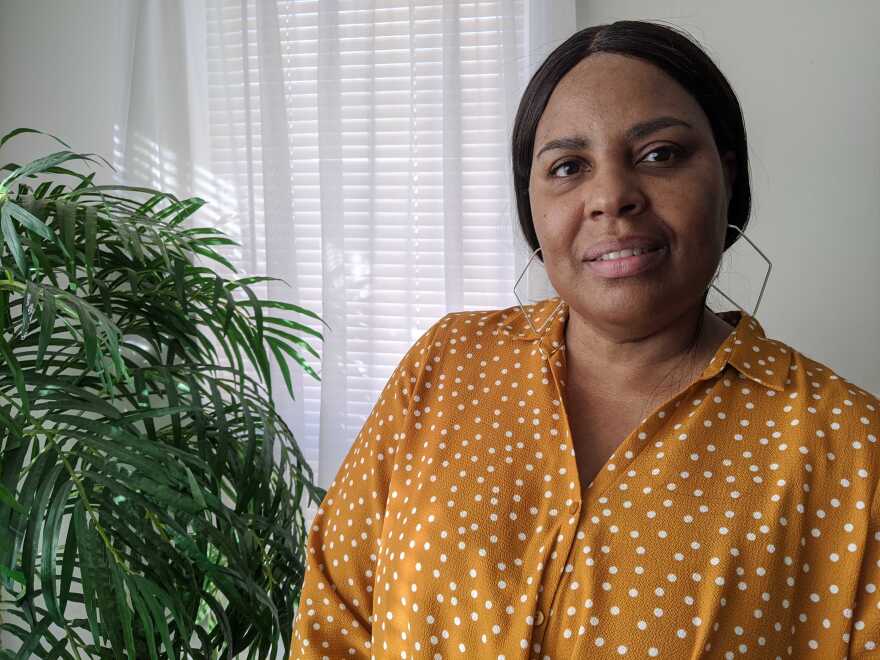Alamance Community College student Rosalyn Chambers knows what it feels like to have something stand in her way.
"The second day of school my car went kaput. It went out on me completely," Chambers said. "I'll never forget it."She was 48 years old and heading back to school full time to get her associate's degree in business management. Chambers says she had to make a tough decision:
"Are you going to finish what you started? Or are you going to make an excuse and go get a job so that you can pay for a new vehicle?"

These are the kinds of questions many community college students have to ask themselves at one point or another. In North Carolina and nationwide, a majority of community college students don't finish a degree or certificate, because of any number of roadblocks -- often related to finances.
Governor Roy Cooper's office helped develop an initiative that gets students out of those jams, with a personal grant to pay for unexpected bills, car repairs and other emergency financial needs.
The Finish Line grant is available to eligible students at all 58 North Carolina community colleges who need help with an unexpected financial hardship that could keep them from finishing school. To be eligible, students must be in good academic standing and have completed enough credit hours to be halfway to finishing their degree. The grant is administered by local workforce development boards in conjunction with North Carolina community colleges.
Nowhere To Turn
When her car broke down, Chambers didn't know about the Finish Line grant, but she stuck to her goals. She caught rides to class with friends and used Uber until she could save enough to buy a used car from her daughter.
Fast forward a semester, and she hit another stumbling block. She had a terrible toothache.
"I was in pain. I could not concentrate on the lectures in class," Chambers said. "My jaw was swollen. I couldn't lie on the right side of my face, and I was just praying for relief."
She needed emergency dental work, but couldn't afford it. As a full-time student, Chambers doesn't have dental insurance and her only income is from a part-time work study job that limits her to 15 hours a week.
Chambers didn't know where to turn for help. As a grandmother herself, she was considering asking her retired parents for assistance.
"That's the last thing you want to do is have to call your parents and ask them for help, especially when they're on fixed incomes," Chambers said.
Then a classmate told her about the Finish Line grant.
Recovering From Bumps In The Road
Chambers went straight to meet the grant manager at Alamance Community College's student success center. She applied immediately and heard back within three business days, as the program guidelines promise.
"I was in his office one day and in a dentist office the next week," Chambers said. "I was ecstatic."
Chambers received the full grant amount of $1,000 for her dental work. After making payments on the bill for several months, she was once again eligible to apply for a second grant that paid off the bill.
"Needless to say, that's a lot of money. That's more than my monthly paycheck," Chambers said.
The Finish Line program has given out more than 3,000 grants of up to $1,000 each since it started in 2018, recently totalling $2 million. The program is paid for with federal funds associated with the Workforce Innovation and Opportunity Act.
Cooper said the program will help North Carolina reach the goal set by the MyFutureNC Commission of having 2 million adults attain post-secondary degrees or credentials by 2030.
"It's a very cost effective way for us as taxpayers to help that hard-working student who just needs that little nudge to finish the degree or credential and to get that better paying job," Cooper said.
Cooper initially proposed funding the program from the state budget, but the General Assembly disagreed. Now Cooper is hoping lawmakers will reconsider and provide state funding to expand the grant to students at four-year universities.
"Because students in both of these arenas experience these kinds of bumps in the road," Cooper said.
As for Chambers, she got better quickly and is back on track to graduate this spring.
"I am so grateful," Chamber said. "And I'm sure, just like it has helped me, it has helped lots of other students who have their own stories to tell."







